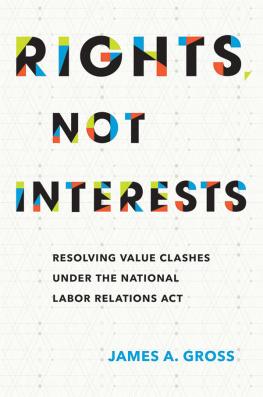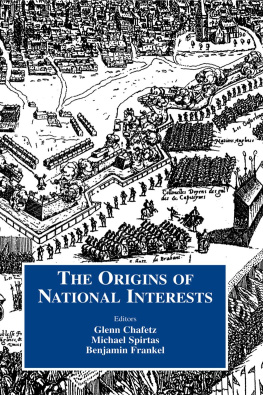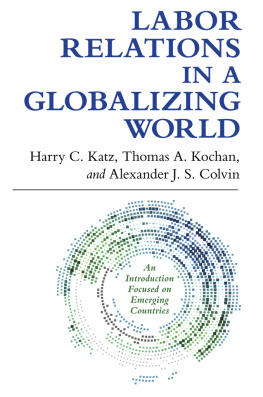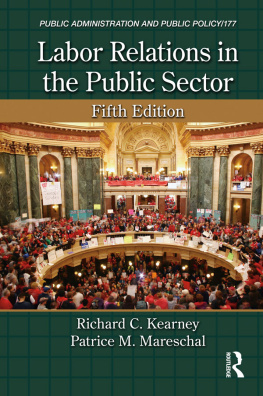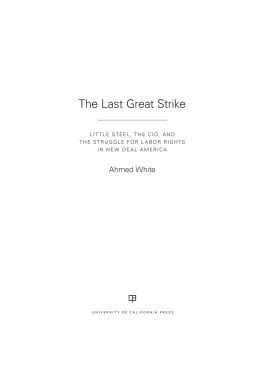Introduction
In 1935, Congress passed the Wagner Act (National Labor Relations Act, NLRA) which was intended to democratize a vast number of American workplaces to enable workers to participate in the employment decisions that most directly affected their lives. What was commonly termed industrial democracy was, through the statutory encouragement and protection of worker organization and collective bargaining and other forms of collective action, to replace industrial autocracyemployers unilateral determination of wages, hours, and working conditions. Today the Wagner Act, although battered by amendment and interpretation, is still in effect and is still a vibrant source of workers rights.
For over forty years my research has concentrated on the National Labor Relations Board (NLRB), the administrative agency created by Congress to interpret and apply the Wagner Act. Rather than focus on the procedures and case doctrines of the NLRB, most of my prior NLRB-related publications, including three volumes dealing exclusively with the NLRB, have analyzed how the NLRBs making of labor policy has been influenced by the president, the Congress, and the United States Supreme Court as well as by the manipulation of public opinion, intense resistance by employers, the political and economic strategies of organized labor, and the ideological dispositions of NLRB appointees.
For example, in the first volume, The Making of the National Labor Relations Board: A Study in Economics, Politics, and the Law, 19331937 (1974), I demonstrate that the major provisions of the Wagner Act were crafted out of the practical lessons learned by people who served on the preWagner Act National Labor Board (NLB) and the old NLRB in conflicts with employers and unions: majority rule, and exclusive representation; the specifications of employer unfair labor practices; the right of employees to organize; and the obligation of employers to bargain with the representative of those employees. Equally important for the making of national labor policy was the transformation of what began in 1933 as a tripartite NLB created to settle strikes through mediation and voluntary cooperation into an independent quasi-judicial NLRB with enforcement power, deciding cases by setting forth binding principles of law.
The second volume, The Reshaping of the NLRB: National Labor Policy in Transition (1981), covers the period from 1937 when the United States Supreme Court upheld the constitutionality of the Wagner Act to the 1947 enactment of the Taft-Hartley Act amendments to the NLRA. In that book I analyze the NLRBs vigorous and uncompromising enforcement of the Wagner Act after constitutionality, and the intense hostile political pressure to which the Board was subjected as a consequence. More specifically, that volume reveals the direct connection between the work of a hostile congressional investigating committee (the Smith Committee) and an alliance of the American Federation of Labor (AFL), business, and Republicans with conservative southern Democrats in Congress and enactment of Taft-Hartley Act.
In the third volume, Broken Promise: the Subversion of U.S. Labor Relations Policy, 19471994 (1995), I explain, among other things, how U.S. labor policy has been at cross-purposes with itself ever since Congress passed the Taft-Hartley Act amendments to the NLRA. Although the Wagner Acts statement of purpose encouraging collective bargaining was carried over verbatim into Taft-Hartley, Taft-Hartleys emphasis on the right of employees to reject collective bargaining, and the inclusion of union unfair labor practices in particular, led to claims that the purpose of the Act was no longer to encourage collective action but was rather to protect the rights of individual employees. This interpretation rejected the concept of the federal government as a promoter of collective bargaining; instead the federal government was perceived as a neutral guarantor of employee free choice between individual and collective bargaining, indifferent to the choice employees made. That volume concluded with the assertion that any reconstruction of national labor policy must start with a resolution of this fundamental disagreement about what the purpose of the law is.
In other research and publications between 1995 and 2015, I came to the view that workers rights must be viewed as human rights, not just rights set forth in statutes or collective bargaining agreements subject to shifting political and bargaining power. That shift in perspective is detailed in, among other writings, A Shameful Business: The Case For Human Rights in The American Workplace (2010).
This fourth volume, Rights Not Interests: Resolving Value Clashes under the National Labor Relations Act , applies that human rights framework of analysis to the work of the NLRB and to U.S. labor policy. This did require, of course, a review of my previous books but in a way that applied human rights standards to important events in NLRB history.
This fourth volume brings a new, and needed, perspective to the reexamination and assessment of U.S. domestic labor policy and the NLRB, in large part but not exclusively, by using internationally accepted human rights principles as standards for judgment. The application of the human rights standard is long overdue because at its core the Wagner Act was a historic human rights statute. Although not using the term human rights , the Wagner Act was far ahead of its time in applying human rights principles to U.S. workforces. As set forth in the Acts Statement of Purpose, the law was intended to promote the fundamental human right of collective action to protect other vital human rights, specifically the exercise by workers of full freedom of association, self-organization, and designation of representatives of their own choosing, for the purpose of negotiating the terms and conditions of their employment or other mutual aid or protection. Violations of the Wagner-Taft-Hartley Act were never considered to be violations of human rights, however, even though that statement of purpose has remained unchanged even following the enactment of the Taft-Hartley Act.
The values underlying many provisions of the Wagner Act, particularly its statement of purpose, are values most consistent with human rights values. The NLRAs freedom of association meant not only collective action, labor organization, and collective bargaining but also the power to make the claims of workers human rights both known and effective. Wagners Act was intended to have workers stand before their employers as adult persons with rights, not as powerless children or servants dependent on the will and interests of their employers. His objective of having wages, hours, and working conditions determined by workers and their employersthrough collective bargaining and not unilaterally by employers or an authoritarian staterecognized that servility is incompatible with human rights.
The NLRA also was intended to enable workers, by exercising their freedom of association, to change those workplace power relationships whereby most people are subjected to economic forces and economic power over which they have little or no control. In that most significant sense, the framers of the Wagner Act were far in advance of human rights activists in recognizing that it was not only the state that had the power to violate peoples rights. More specifically, the Wagner Act emphasized the importance of economic rightsfor example, the identification of wages, hours, and working conditions as subjects of collective action and collective bargaining. Wagner asserted that true freedom could not exist without economic security and independence. As the drafters of the Universal Declaration of Human Rights would state thirteen years after the Wagner Act became law, conditions for a fully human life are created only when all people enjoy their economic, social, and cultural rights as well as their civil and political rights.

